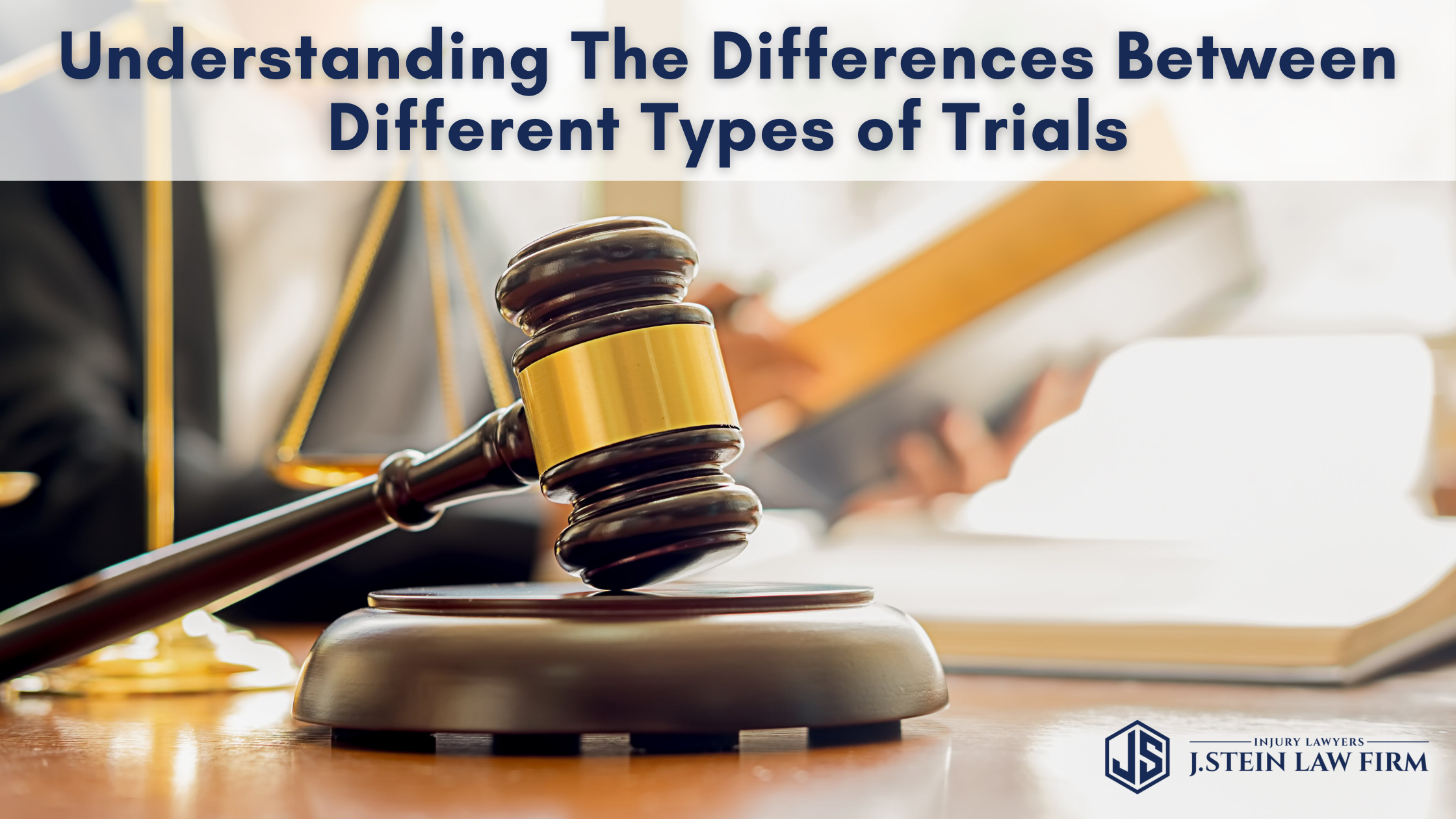Understanding the Differences Between Different Types of Trials
You may be familiar with criminal court cases and how they conclude with a verdict against the defendant of guilty or not guilty. Personal injury cases are also handled with the court system but the verdicts center on how much money, if any, a defendant must pay an injured Plaintiff. There are also several different options when it comes to prosecuting a personal injury case. Continue reading to understand the difference between trials.
The most common ending to a personal injury case is through a voluntary settlement. In a voluntary settlement, the insurance company offers a sum of money that both sides agree is fair and reasonable for the personal injury sustained.
If the parties cannot agree to a settlement, the other option is a trial. There are three different types of trials:
1. Jury Trial
A jury trial is a lawful proceeding where a jury of your peers make a decision, within the court, of how much money you should be awarded for the injuries you sustained. In the United States, you are allowed a jury trial based on the Constitution. The judge is still involved in the trial to make sure the law is being abided by, but the jury has the final say in the verdict. A jury is composed of 12 people and all 12 jurors must agree to make a unanimous decision on the amount of money to award. A jury trial can be difficult since you have to convince all 12 people that you deserve compensation for your injuries, much less a specific amount of damages to be awarded.
2. Bench Trial
In a bench trial, the judge must determine the questions of law and questions of fact without a jury. Without a jury, the judge will be the sole decision-maker in the amount of money to award the plaintiff. Bench trials are becoming more popular because it can allow for a trial to happen sooner.
3. Binding Arbitration
Arbitration is a private process where the two parties agree to have a neutral, unbiased third party resolve a dispute without going to court. Certain disputes are held to a contract that requires the parties to submit their case to an arbitrator. Typically, there are three people within the neutral third party that review the entire case and decide an amount that is fair and reasonable to both parties.
Jury trials can be the best way to get a positive result in personal injury cases but a bench trial can be a great alternative if you have a fair and impartial judge. No matter what type of trial is utilized, the attorneys at the J. Stein Law Firm have your best interests in mind to get you the result you deserve.
If you have recently experienced an injury and are looking for representation, the J. Stein Law Firm is here to help. Our attorneys can handle the claim filing and court process to allow you the time to rest and recover. Schedule your free consultation today.
Sources:
https://www.youtube.com/watch?v=xlhGL-yI5Lg
https://www.nolo.com/legal-encyclopedia/timeline-personal-injury-lawsuit.html


